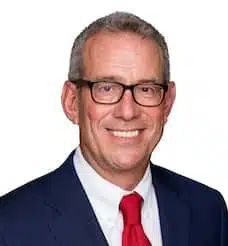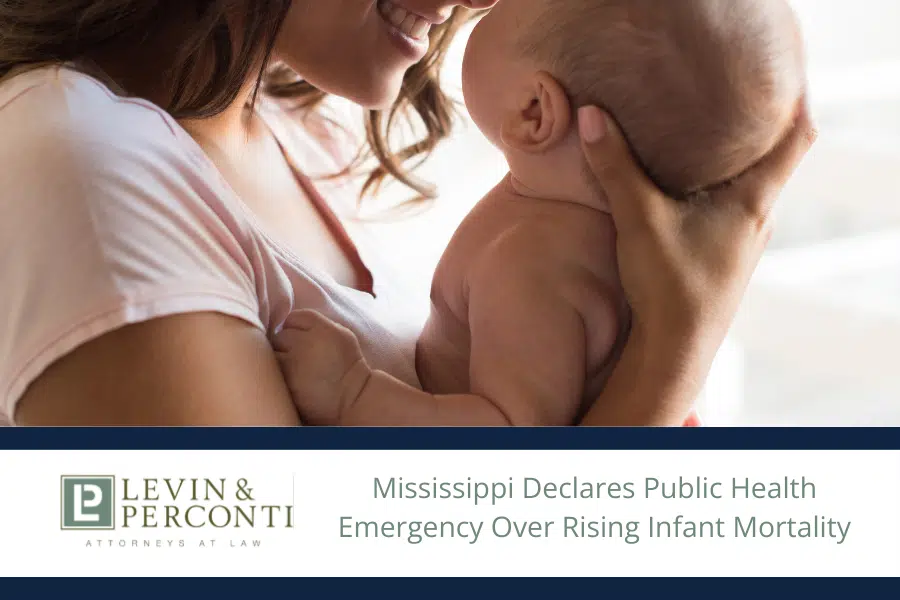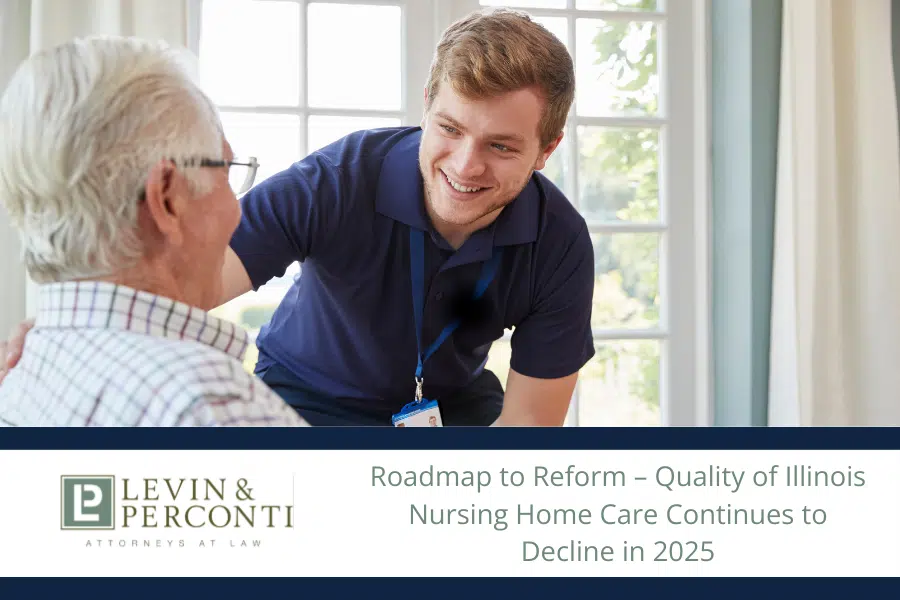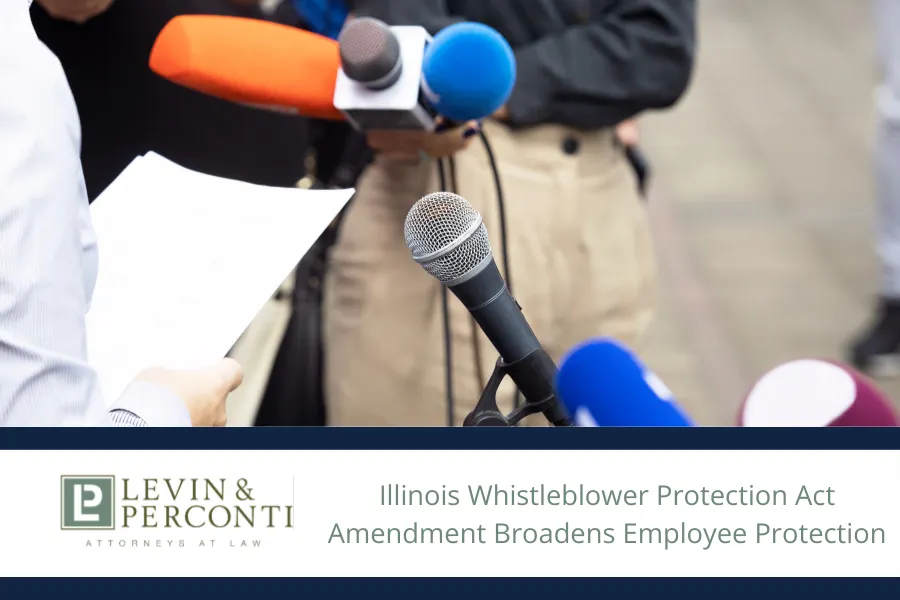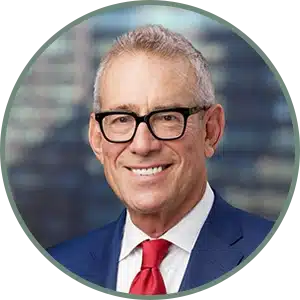
Content Reviewed by:
Steven M Levin
Content Reviewed by: Steven M Levin
Accordion Content
Since 1976, Steve Levin has been dedicated to helping people injured by others’ negligence. He is one of the first attorneys in the U.S. to prosecute nursing homes for abuse and negligence. He’s also helped write new legislation that governs the operation of nursing homes, including the Illinois Nursing Home Care Act. Moreover, Levin & Perconti has obtained the top three jury verdicts in nursing home negligence cases in Illinois.
A message from Attorney Steven Levin
By now it seems self-evident that the nursing homes and assisted living centers housing many of our elderly and most vulnerable citizens are uniquely susceptible to outbreaks of the novel coronavirus, COVID-19.
We know that the disease is particularly dangerous for older people. We understand intuitively that a site where older people — some of whom cycle in and out of hospitals, bringing germs back and forth — live in close quarters, with shared spaces and resources, faces heightened risk for infection and contagion.
Beyond this, research tells us that long-term care facilities are often under-staffed and lacking in basic infection controls.
Surely, this is a time when serious action is needed, when government, health care providers and the nursing home industry all should be working together to protect the people most endangered by this outbreak: 2.5 million U.S. nursing home residents and 1.8 million nursing home staff members.
Yet the response to this crisis lacks urgency and clarity.
Guidance issued last week by the Centers for Medicare and Medicaid Services (CMS) suggests that nursing homes should screen visitors and block those who have symptoms of respiratory infection or who have traveled to certain countries or had contact with someone who might have COVID-19 from entering their facilities.
There were no specific rules issued covering other scenarios of potential disease transmission, such as admitting a new resident from a hospital where COVID-19 was present, and no specific rules to state when a resident with COVID-19 can remain in a nursing facility or should be moved out.
There were no new rules around infection control or prevention, as CMS administrator Seema Verma said that existing rules around infection control and prevention should provide a strong defense — if they are followed properly.
This is simply not true.
Without the COVID-19 outbreak, 380,000 people already die each year from infections at long-term care facilities and 1 million more are sickened by them, according to the Centers for Disease Control & Prevention.
At the Seattle-area nursing home that has been the scene of infection for six of the deaths from the virus in the United States so far, in the week since officials first announced the outbreak, COVID-19 is said to have spread to six more residents and 70 staff members.
That nursing home, Life Care Center of Kirkland, has a five-star rating from CMS’ Nursing Home Compare website. This isn’t an exception: a recent report from Kaiser Health News found that 53% of five-star rated facilities have received violations for failing to comply with infection-control standards in the last three years.
If this is how vulnerable top-rated facilities are to COVID-19, what might happen should the virus come to one of the 44 “special focus facilities” around the country that CMS has identified as being most deficient in quality and safety compliance?
Every long-term care facility should be holding infection control boot camps for their employees and moving to limit face-to-face contact between residents, staff and visitors wherever possible. Staffing policies must be overhauled to enable potentially ill employees to take time off while still achieving appropriate caregiver-to-patient ratios for adequate care.
CMS says it now is focusing its inspection and enforcement efforts on these infection control methods, but this move is happening far later than it should have. We do not know how many have already been exposed to COVID-19.
This was not inevitable.
In 2016, the Obama administration set out new rules calling for long-term care facilities to develop infection control and prevention plans to detect, report and contain communicable diseases and to have infection prevention specialists on staff. But, under the Trump administration, officials have largely failed to enforce these policies. An NBC News investigation last year documented a 34 percent reduction in the overall dollar amount of fines and penalties for nursing homes from 2017 to 2018. And, last July, the administration proposed eliminating “excessively burdensome requirements,” including the mandatory infection prevention specialist staff position.
CMS must reverse its position on these rules immediately. Federal and state inspectors must mobilize the resources they need to visit all long-term care facilities (from the high-risk “special focus facilities” to the top-rated five-star ones) to evaluate infection control practices and correct deficiencies.
Half of the $950 million allocated by the most recent congressional funding package for state and local public health response to COIVD-19 is set to be distributed in the next 30 days.
Governor J.B. Pritzker and the Illinois Department of Public Health have been effective in launching monitoring efforts at hospitals, issuing guidance to long-term care facilities here and securing test kits to identify coronavirus cases. Now they must take the next step and use some of this funding to mobilize inspectors to ensure that their guidance is being heeded.
We simply cannot afford to fail the millions of people most at risk in this outbreak.
Respected Elder Abuse and Nursing Home Negligence Attorneys
If a loved one has sustained a serious infectious disease complication resulting from neglect or missed medical treatments provided by a nursing home or due to a dangerously low level of care staff, they may be entitled to compensation. Please contact attorney Steven Levin now for a free consultation at (312) 332-2872.
